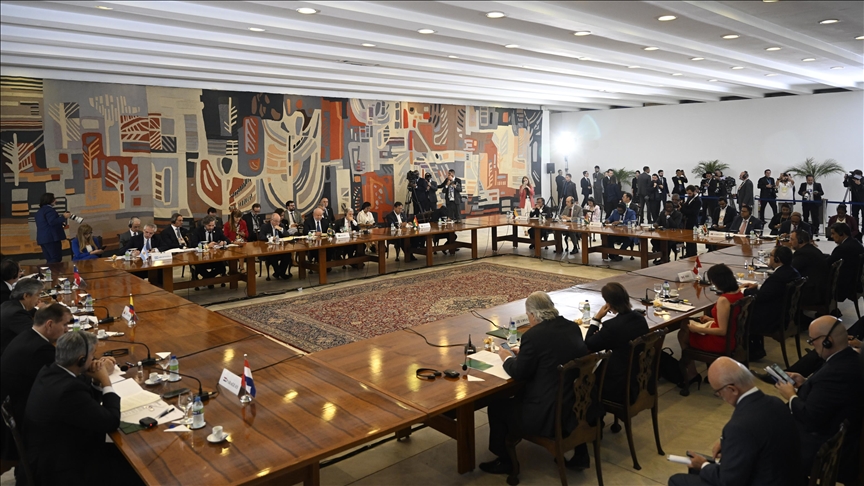Eleven South American presidents signed a document Tuesday on establishing a ministerial-level working group that will be tasked with creating a roadmap for regional integration.
The move followed a regional summit in Brazil’s capital Brasilia hosted by President Luiz Inacio Lula da Silva.
Lula, along with Argentina’s President Alberto Fernandez, Bolivia’s President Luis Arce, Chile’s President Gabriel Boric, Colombia’s President Gustavo Petro, Ecuador’s President Guillermo Lasso, Guyana’s President Irfaan Ali, Paraguay’s President Mario Abdo Benítez, Suriname’s President Chan Santokhi, Uruguay’s President Luis Lacalle Pou and Venezuela’s President Nicolas Maduro signed the “Brasilia Consensus.”
Divided into nine points, it outlines actions to be taken to establish cooperation mechanisms in the face of growing international challenges such as the climate crisis, threats to peace and global security, pressure on food and energy chains, the risk of new pandemics, increases in social inequalities and threats to institutional and democratic stability.
One of the critical points of the document was the creation of a contact group headed by the foreign ministers which will “evaluate the experiences of South American integration mechanisms and draft a roadmap for the integration of South America to be submitted for consideration by the heads of state.”
The group has 120 days to come up with concrete proposals which will be presented at the next meeting of the presidents.
The regional effort will enable trade, financial integration and openness to commerce and investment through existing mechanisms such as the Latin American Integration Association (LAIA), a regional bloc consisting of Argentina, Bolivia, Brazil, Chile, Colombia, Cuba, Ecuador, Mexico, Panama, Paraguay, Peru, Uruguay and Venezuela.
The leaders hope to create a free trade area with a consolidated and united South America.
In addition, they hope their efforts will benefit the most vulnerable sectors of their countries such as indigenous peoples by attempting at the regional level to resolve crises in health, food security, education, environment, natural resources and clean energy.
The leaders agreed to meet again on a date and place to be decided to review the progress of the South American cooperation initiatives and determine what is to come for the region.
Source : aa










